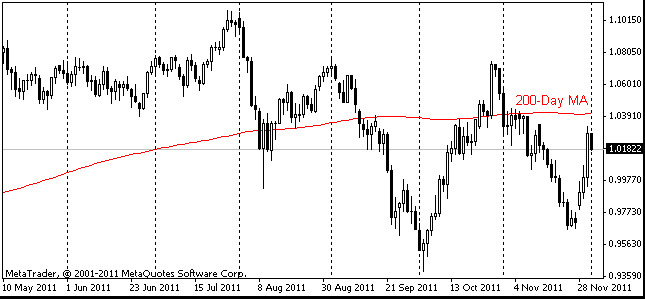EUR/usd
The single currency didn't manage to show any significant dynamics yesterday. Despite the positive reaction of the market to the approval of a Greek bailout package, the euro sales broke out. But as there were no strong reasons to sell the euro, the downward movement didn't get any support either. The euro got stuck between 1.32 and 1.33. But this concerns only EUR/USD. Against the aussie, yen and pound, EUR feels much stronger. Risk demand manifests itself in the strengthening of equity markets and rise in the price of gold. oil rides its own wave – geopolitics – but on the whole its trend coincides with the general movement. Under such circumstances the dollar usually declines, against the common currency as well, but this time it is different. Investors fear that the Greek deal will eventually fail, as there is still a lot to be done. The biggest risk factor here is obtaining the approval of the national parliaments, which will hardly be an easy matter. Americans are tired of waiting for the Syrian opposition to seize the initiative, so in Washington and the U.S. State Department it's been decided to help the opposition. It will probably boost the dollar sales as well, because demand for commodities is likely to go up on such news, as was the case with Iraq and Libya. More tension may shortly come up from Iran as the country is unwilling to become the next field for Americans to sow their seeds of democracy.

GBP/USD
The pound is falling against the dollar and the euro, having dropped by 0.5% and 0.3% respectively. It's mainly caused by investors' anticipations that Britain will have to pay higher prices for oil imports after Iran stops its deliveries to the country. In fact, it won't be easy for such a commodity dependent country as Britain to handle the rise in energy prices. We've already mentioned the improvement of trade balance on relatively stable oil prices, but it is unlikely to happen again in the coming months. Despite that the country demonstrates a certain progress in the austerity measures. January's public finances proved in surplus, which allowed for the public debt reduction from 64.3% of GDP to 63%. Probably, the current trend is far from being breached, but definitely borrowings are now less than a year ago, which has already been observed for several months in a row.

USD/JPY
The yen is literally impossible to stop. The short-term indicators of overbuying go off-scale and the level of 80 has been breached earlier today. The similar rally was last seen only at the end of March 2011, when the central bank handed out money to keep the national financial institutions afloat after the earthquake and tsunami. Now it's even more obvious that this movement has been triggered off by the government and central bank: the market alone would hardly have rearranged itself that quickly. Yet, it is still uncertain when the rally will come to its end.

AUD/USD
The Australian dollar stays unaffected by the rally in stock markets. This foreign party doesn't in the least cheer up the Aussie. And though Dow Jones went above 13 000 points overnight, the Aussie still dropped at the opening. It was declining all day yesterday as well. One of the reasons for this cold snap is the Chinese slowdown. Yet, there is a great deal of long positions in the currency. Music is about to stop at the other end of the world – guests are tired.
